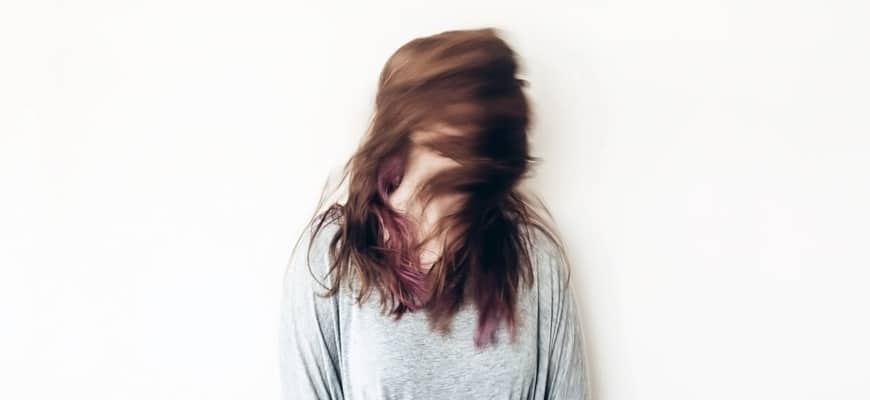Anxiety is a feeling that makes you worry, feel tension in your body, nibble your lip and rub your palms.
The mind is in a tense expectation of something dangerous, unpleasant, not good, but we can’t always identify what it is and moreover, we can’t always be aware of our underlying anxiety if it has become chronic.
We will dissect the nature of unreasonable fear and anxiety, and advise effective techniques with which you can remove anxiety and fear without medical help.

What is anxiety and restlessness?
Anxiety is an emotional state caused by nervous anticipation of what can happen in the near or distant future. It can have both a definite object (anxiety before meeting someone, anxiety before a long journey) and be indefinite, a kind of misgivings. This feeling is tightly connected with the instinct of self-preservation and often manifests itself in stressful, shocking, or simply non-standard situations.
It is normal to feel a vague sense of anxiety while in an unfamiliar part of town at night, or when passing by a crowd of drunken people. It is quite different when anxiety is bothersome even in a state of complete safety and stability.
The most extensive category of anxiety disorders are phobias. In psychiatry, there are about a hundred varieties of different fears associated with specific objects and situations.
Anxiety is an accumulated tension in the body, psyche and mind. People can experience nervous tension nonstop for no apparent reason, which severely inhibits their daily activities and prevents them from weighing their own actions and their consequences.

Feeling Anxiety and Anxiety in Psychology
Feeling of anxiety includes a range of emotions:
- Fear;
- shame;
- shyness;
- guilt;
- complexion.
In general, anxiety occurs when there is a feeling of threat or lack of comfort and safety. If the situation is not changed in time, it will develop into a chronic anxiety disorder.
Fear and anxiety – what’s the difference?
Attacks of fear and anxiety are similar in many ways, but, again, their difference is significant and lies in the lack of specificity. Unlike fear, which often has a definite subject, anxiety can be unidentifiable and gratuitous.
Common symptoms of anxiety states
According to medical statistics, anxiety without a cause is characteristic of more than 90% of adolescents and more than 70% of people 20 years of age and older. The following symptoms are characteristic of this condition:
- A feeling of helplessness, helplessness;
- Inexplicable panic before an upcoming event;
- Unexplained fear for own life or the lives of loved ones;
- perception of standard social functions as an inevitable encounter with hostile or judgmental attitudes;
- apathetic, depressed or depressed mood;
- inability to concentrate on current affairs due to intrusive anxious thoughts;
- A critical attitude toward oneself, devaluing one’s own accomplishments;
- constant “replaying” in the head of situations from the past;
- search for “hidden meanings” in the words of the interlocutor;
- pessimism.
Physical manifestations of anxiety syndrome include:
- heart palpitations;
- weakness and fatigue;
- a “lump in the throat” like before crying;
- redness of the skin;
- GI problems.
And also. Internal anxiety is quite clearly visible in the behavior:
- nibbling of the lips;
- scratching or cupping of hands;
- snapping of the fingers;
- fixing his glasses or clothes;
- fixing hair.
How do I distinguish between normal and abnormal?
Anxiety due to external factors or a person’s character is considered normal. Vegetative symptoms such as palpitations do not manifest themselves in any way. Pathological hyper-anxiety accompanies a person regardless of the presence of causes and affects his physical condition.

What can anxiety lead to?
Anxiety and anxiety for no reason can lead to behavioral disorders and loss of social skills, for example:
- A tendency to exaggerate and fantasize. This technique is often used in horror movies. It makes us doubly afraid when we don’t see the creature making the scary noises. The imagination draws itself a monster, although, in fact, it may be an ordinary mouse. Also in the case of unreasonable anxiety: the brain, having no specific reason to feel fear, begins to complete the picture of the world itself.
- Aggression as a defensive reaction. A frequent companion of social anxiety. The person expects that people around him or her will condemn, press or humiliate, and as a result, he or she exhibits malice and wariness, trying to keep self-esteem.
- Apathy. Impotence, depression, and inability to concentrate on important matters often accompany individuals suffering from anxiety without cause.
- Psychosomatic. Stress often finds an outlet in the form of physical ailments. Heart, nervous system and gastrointestinal problems are not uncommon with anxiety. I recommend an article on how to live a stress-free life.
Causes of anxiety in adults
Despite the fact that a person experiences seemingly gratuitous fear and excitement, the disorder always has a premise. It could be:
- Genetic predisposition. The child of phlegmatic or melancholic parents is very likely to inherit this feature of neurochemical processes.
- Peculiarities of the social environment. Anxiety is characteristic of a person who as a child experienced great pressure from parents, or on the contrary, was guarded and had no opportunity to make his or her own decisions. Unconscious anxiety before “going out into the world” is also experienced by adults who were outcasts or bullied as children.
- Fear of parting with life. This can be an accident, an attack or a fall from height – a traumatic experience is fixed in the person’s subconscious and occurs as deja vu, when events somehow resemble events from the past.
- Being in a non-stop state of stress. Work in rush mode, intensive training, constant conflicts in the family or problems with finances negatively affect morale.
- Severe physical condition. The inability to control your own body hits your psyche hard and makes you think in a negative way and fall into apathy.
- Hormonal imbalance. During pregnancy, after childbirth and at menopause, women may experience uncontrollable attacks of fear, aggression or anxiety. Anxiety can also be a consequence of endocrine gland malfunction.
- Nutritional, micronutrient and vitamin deficiencies. The body’s metabolic processes are disrupted, and starvation affects the brain in the first place.
Neurotransmitter production is negatively affected by the lack of B vitamins, glucose and magnesium.
- Sedentary lifestyle. If there is not even minimal physical activity in a person’s life, all metabolic processes slow down. Feeling anxious for no reason is a direct consequence of this imbalance. A light warm-up promotes the release of endorphins and at least a momentary distraction from oppressive thoughts.
- Brain damage. Birth traumas, serious infectious diseases suffered at an early age, concussions, alcoholism or drug addiction.

Causes of increased anxiety in children
- Anxiety in a child in 80% of cases is an oversight on the part of parents.
- Overprotective parenting.. “Don’t go there – you’ll fall, you’ll hurt yourself!”, “You’re too weak, don’t pick that up!”, “Don’t play with those kids, they’re a bad influence on you!” – All these forbidding and limiting phrases put clamps on the child, which manifests in adulthood in insecurity and stiffness.
- Mistrustfulness and hysterical caregivers. Anxiety disorder is often found in people who grew up with grandmothers. Loud sighs and cries when a child falls or is bruised are deposited in the subcortex as a block to action implying minimal risk.
- Alcoholism, drug addiction, religious fanaticism of parents. When a baby does not have the example of a person who can take responsibility for his or her own actions before his or her eyes, it is very difficult for him or her to learn self-control.
- Frequent conflicts between the mother and father. A child who regularly sees his parents fighting locks himself in because of his helplessness and gets used to living with a sense of anxiety in his soul.
- Cruelty or detachment on the part of the parents. Lack of emotional contact, affection and intimacy with parents in childhood leads to socially awkwardness in adulthood.
- Fear of separation from mother or father .. Threats to leave the family severely damage a child’s psyche and undermine his or her trust in people.
- Lack of a firm understanding of what is allowed and what is not. The father’s prohibition, but the mother’s permission, the phrases “you can’t do it, but now you can” deprive the child of reference points.
- Fear of not being accepted by peers. Because of the realization of the difference from others (external or social).
- Incompetence. The mother’s desire to do everything quickly and qualitatively (to dress, wash, lace up) leads to the fact that the child will feel awkward against the background of more independent peers.
Increased consumption of caffeinated drinks and foods high in sugar is detrimental to morale.
How to get rid of anxiety and restlessness on their own?
Staying in an anxious state for no reason, a person is quickly exhausted and begins to look for ways to solve the problem. The following psychological practices will help to get out of a state of oppression without assistance:
- Understand and accept that you can’t keep everything under control. There is always room for unpredictable events. As soon as you realize that things don’t go according to plan, build a new one. That way you’ll feel grounded again, and you’ll know where to go next.
- Don’t worry about what’s happened in the past or what’s to come in the future. Be aware of yourself in the present moment. This is the only time where you can work on your own comfort.
- Pause.. Give yourself time to calm down and stabilize. Pause for 1 hour, have a cup of tea, meditate. Don’t work on burnout. Allow the emotions to come out. Don’t shut yourself out – cry, beat a pillow, complain to someone, or write a list beginning with the words, “I’m anxious because…”.
- Change your surroundings. If you feel like the whole environment is weighing on you, change it. Take a new route home, eat a dish you haven’t tried before, try wearing clothes that don’t fit your style. This will give you the feeling that time is not standing still. Whenever possible, go on vacation and give yourself a break from the daily grind.
To develop a permanent habit, do the same thing for 21 days. Give yourself a break from oppressive obligations for 21 days and do something that you really enjoy. The psyche will have time to readjust in a different way.
How to get rid of fear quickly?
There are situations when you need to get rid of the excitement and fear immediately. This can be a matter of further reputation, self-esteem or even life and death. The following tips can help remove anxiety and fear in a few minutes:
- Talk to yourself by calling yourself by name. Ask yourself: (name), why are you so anxious? Do you think you can’t handle it? Encourage yourself the way you would encourage someone close to you. Think of all the situations where you overcame yourself and praise each one. There’s a good article on living for yourself..
- Meditate. Learn simple meditation techniques. Take a comfortable position, close your eyes and concentrate on your breath without trying to control it. Three to five minutes will be enough to relax. Also helpful yoga classes..
- Make yourself laugh. Remember a funny story, watch a funny video or ask someone to tell you a joke. A few minutes of laughter and the anxiety will disappear as suddenly as it appeared.

When is it worth getting help from a doctor?
Due to the fact that psychological illness is a taboo topic for the CIS countries, most people find it very difficult to admit their helplessness in front of the disease and to turn to a specialist. This should be done if:
- Constant anxiety is accompanied by bouts of panic terror;
- desire to avoid discomfort leads to withdrawal and self-isolation;
- a dragging pain in the chest, attacks of vomiting, dizziness, spikes in blood pressure up to the loss of consciousness;
- feelings of exhaustion and powerlessness from endless severe anxiety.
Remember that mental illness is also an illness. There is nothing wrong with it, just as there is nothing wrong with a cold. It is not your fault that you are sick and need help.
By talking to a specialist, you will know exactly what to do in your situation and what to put off for later. You won’t act by “trial and error,” which will also help to calm you down.
In my programs and courses I teach people to come out of chronic anxiety and return to their wholeness and inner harmony using a holistic approach. If you have a need for inner healing, a desire and willingness for self-discovery, if you are ready to find your inner silence, I am happy to invite you to my programs and courses.
With love, Maria Shakti






